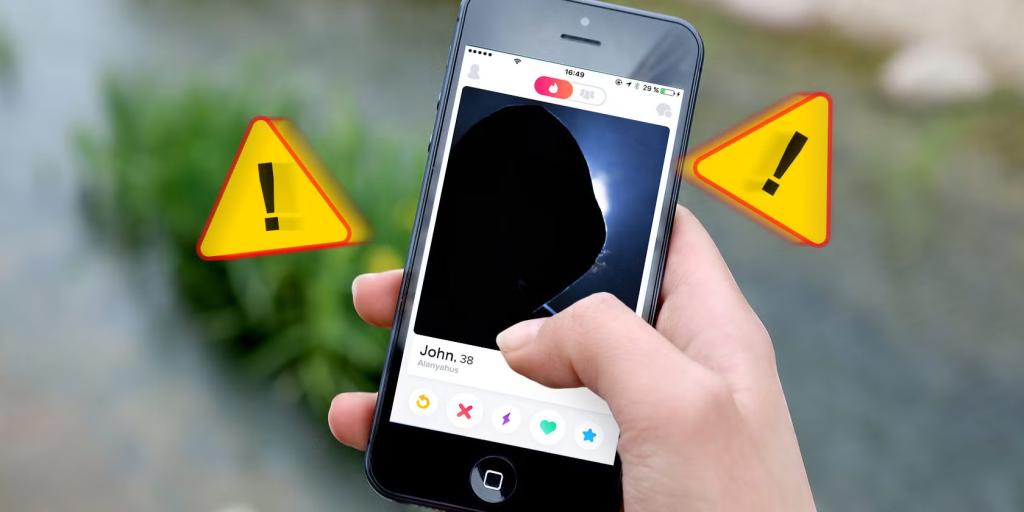
RELATED: INSTAGRAM ROMANCE SCAMMER: 5 RED FLAGS
Did you Tinder’s got more than 75 million monthly active users? It’s a #1 app for finding love or just some fun. But not everyone’s there with good intentions. We talk exactly about Tinder catfishing!
Ever heard of it? Catfishing is a popular online dating scam. Like, someone uses a fake profile to get you off the app by asking for your phone number or email. And then start texting or calling to build a relationship.
You’ll never meet them in person because they’re just trying to gain your trust. And eventually scam you for money, steal your identity, or for other shady reasons!
1. Scammy Tinder Bots
AI chat bots! They have infiltrated Tinder, pretending to be real profiles and engaging in conversations. They may send you links to games or chat apps, leading you to malware-infested websites or fake sites seeking personal information.
To identify a Tinder bot, watch for red flags like generic or overly professional photos, unnatural conversation flow, and links sent early in the conversation.
Asking complex or specific questions can expose a bot, as they often give out-of-context responses. If you encounter a fake profile or bot, report it to Tinder and refrain from clicking on any suspicious links.
2. Spyware and Computer Viruses
Scammers might drop links that take you to sketchy sites that load spyware, viruses, or malware onto your device. Your data could get exposed, personal info stolen, or your account hacked.
To protect yourself, avoid clicking on links from strangers on Tinder. Treat any unsolicited link as a red flag and refrain from engaging with potentially harmful content.
3. Racy Photos for Personal Details
Some scammers entice victims with the promise of sexy photos. They gradually build excitement and ask for more personal details in exchange for revealing pictures.
Okay, most users are savvy enough to spot this scam. But some can actually share their sensitive info (like Social Security numbers and credit card details.)
Avoid falling for this ploy by being cautious about sharing personal details with strangers online. If someone insists on trading "sexy" photos for personal information, it's likely a scam.
4. Verification Codes Scam
Scammers may try to take over your account by gaining access to someone you trust and requesting verification codes from you. They might impersonate your friend, claiming they need your help verifying their account, and ask you to share the verification code.
Never trust verification codes that come out of the blue, and never share them with anyone. If you receive such requests, verify the sender's identity through other means before taking any action.
The Bottom Line
As psychologist Wilda Harrison says: "People who are more likely to fall for these scams often have unmet emotional needs, like being lonely or having low self-esteem, which makes them look for approval and connection online. Getting help for these underlying problems through therapy or self-reflection can be very helpful for becoming less vulnerable to manipulation and lying on digital dating sites."
Making sure you're safe on Tinder is the most important thing you can do in the vast sea of online dating. As you figure out how to handle the complicated world of modern romance, watch out for scammers and catfishers who want to take advantage of your trust and put your safety at risk.
Always use iFindCheaters' services to protect yourself even more on your dating trip. Our platform is effective and confidential, so you can find out what secrets your potential matches might be hiding. This gives you peace of mind and the information you need to make good choices.
You can try us for free right now and start dating with confidence, knowing that iFindCheaters has your back and will protect your heart and personal information from scams. Keep in mind that you can find love online, but with iFindCheaters on your side, you can move through the digital world with more confidence and honesty.













